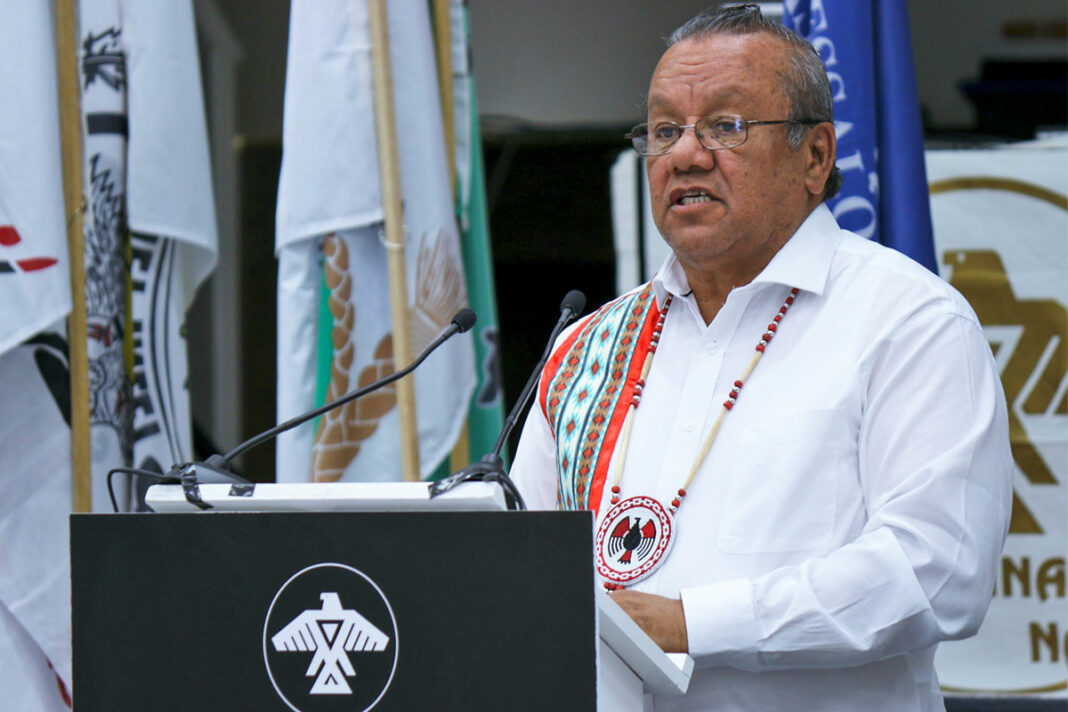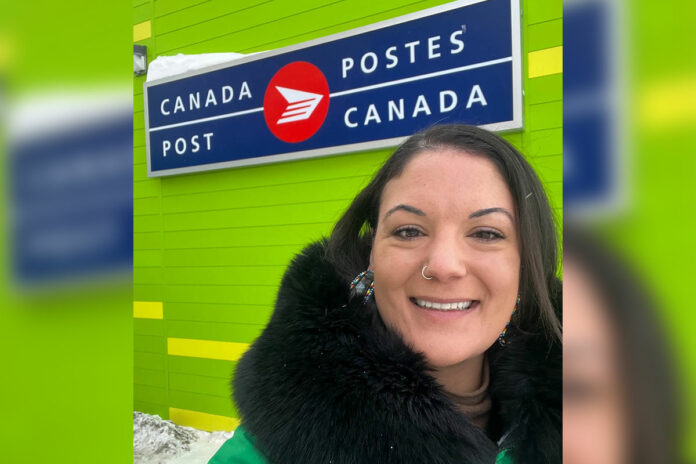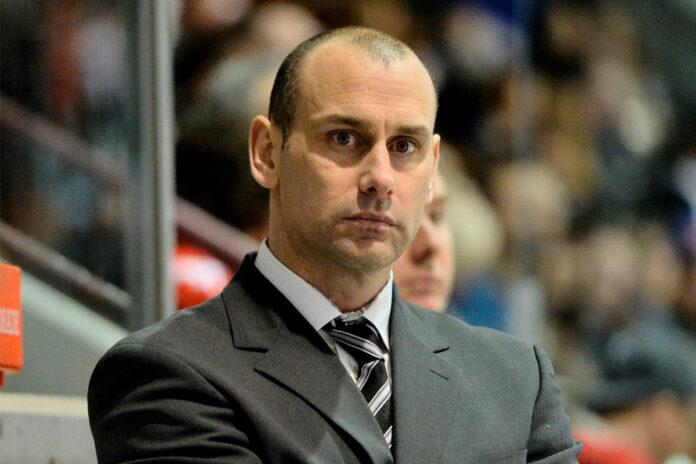M’CHIGEENG—Glen Hare is once again this year putting his name forward in the upcoming election for Ontario Regional Chief.
“One more round is what I’m hoping for if I get elected,” stated incumbent Ontario Regional Chief Hare who has put his name in the ring in the election taking place on June 12 at the Six Nations of the Grand River.
“There are lots of issues facing us now and in the future, but there are three main things I would like to focus on if elected. One of the issues with Canada and especially Ontario, that I think we need to do a whole lot of work is the online staking by mining companies on our territories. These companies with deep pockets go into our territory especially in the North and just do what they want without any benefit to the communities they are digging and mining in.”
“We called for a moratorium on new mining sites, but this was not heard by the government, so we now need to take action,” said Ontario Regional Chief Hare. He stressed, “we are definitely not opposed to economic development and job creation, but share the wealth and benefits with the First Nations that you are carrying on this work in.”
“The Metis Nation issue is another one that needs to be addressed,” said Ontario Regional Chief Hare. “The claims being made by the Metis Nation of Ontario (MNO) is amounting to identity theft. They are stealing the identity of our people, and building up their organization, but they are not legitimate Metis people.”
“Across Canada we only recognize the Red River Metis of Manitoba,” said Ontario Regional Chief Hare. “In Ontario, Saskatchewan, British Columbia and Alberta the claims they are making to be Metis people aren’t legitimate, even though they are being recognized as a government by the federal government. We are definitely not going to stay quiet on this issue.”
“One of the other major issues out there that is affecting us and needs to be looked at is the recognition of laws and bylaws in our policing system,” he said. “The bottom line is that when we travel to municipalities and communities I for one respect the laws. But when people come to our territory it seems to be an open season. The government doesn’t recognize our laws and bylaws for policing and enforcement and because of this drug dealers will come to our communities because our laws are not recognized by the court system. So, we have decided that we have to go to the courts on the issue of First Nation policing laws and bylaws not being recognized by the government.”
Ontario Regional Chief Hare said there are many other issues that need to be looked at, with a lot more work that needs to be done on child welfare reforms, for one.
Under his leadership the Chiefs of Ontario (COO) has supported and advocated for the treaty territories in the Green Belt issue, by challenging the relationship with the province and the Ministry of IAO on ‘Building Homes Faster.” COO advocated strongly in health and land resources, education and food security following the COVID pandemic.
On the child welfare settlement, the COO has had a successful result although there is more to do on the reform. And on the Metis Nation issue, COO was on Parliament Hill lobbying the government to kill Bill-53.
Currently the COO is working on water, health and police legislation by advocating for housing and the need for funding infrastructure.
Regional Chief Hare holds the Assembly of First Nations (AFN) portfolio. The water legislation is ongoing as COO continue to work on getting rid of the boil water issue in many First Nation communities.
Regional Chief Hare said that if reelected he will continue to focus on the resolutions that were developed by the last COO fall assembly.
As the former chief of M’Chigeeng First Nation, Mr. Hare consistently attended courts to help keep families together, preventing Childrens’ Aid Society apprehensions, his campaign brochure notes. “There are many such situations that have been helped by Glen’s determination to protect our inherent rights. He speaks from the heart and strongly defends the rights of the children.”
Mr. Hare has a lot of political experience, having been the Ontario Regional Chief for three years, having served on the AFN executive as Anishinaabe Grand Council Chief, Deputy Grand Council chief, Robinson Huron Regional Chief, M’Chigeeng First Nation chief for 12 years and as a councillor for eight years. He has also served on the UCCM Police Commission. He brings with him years of political experience in dealing with the provincial and federal governments. Foremost, he has held various positions over the years working within council, regional and national levels in First Nation politics. He has been to many of our First Nations and has seen and heard firsthand many of the issues that our First Nation citizens are dealing with,” his campaign brochure reads.





